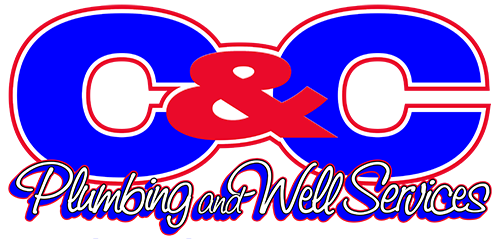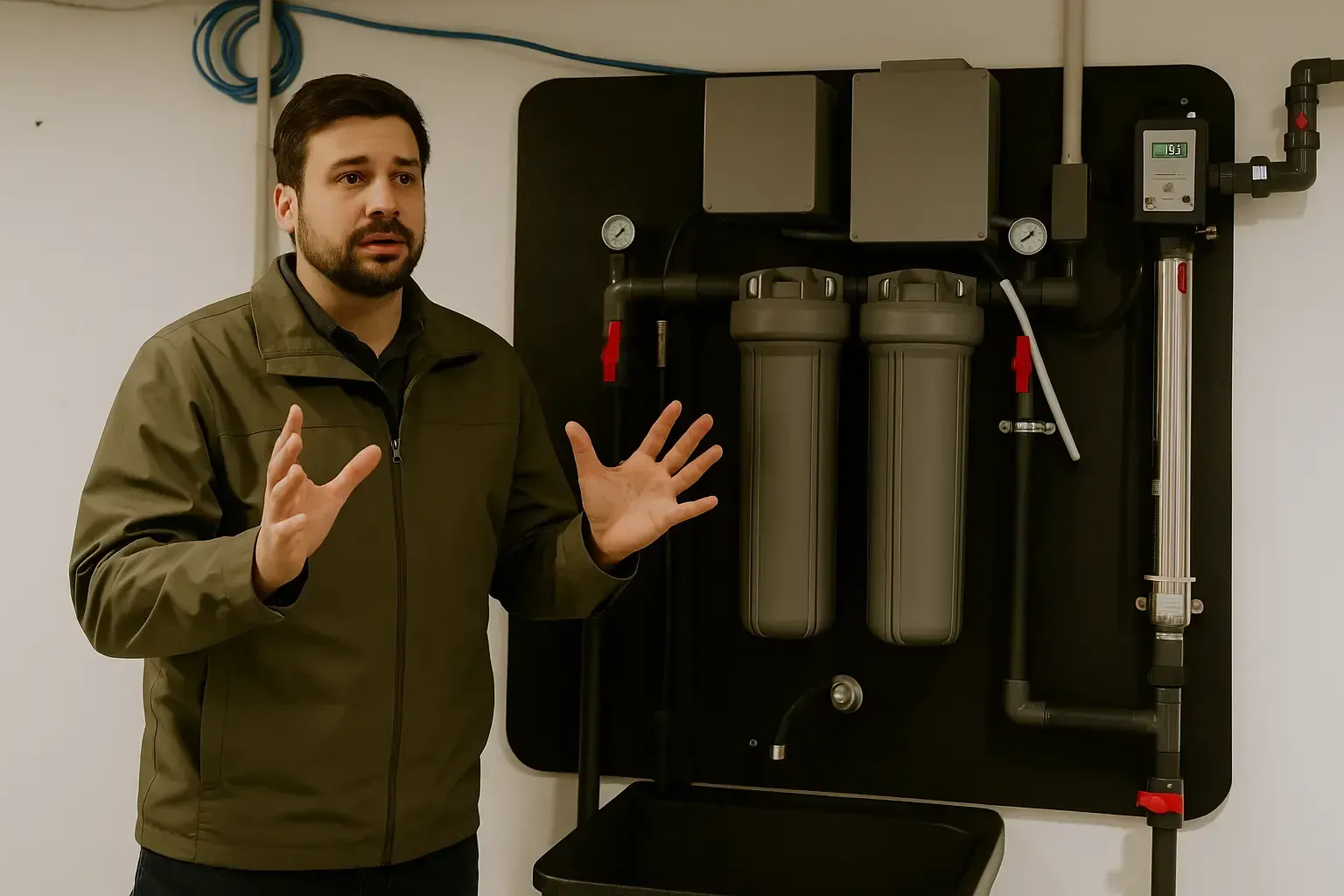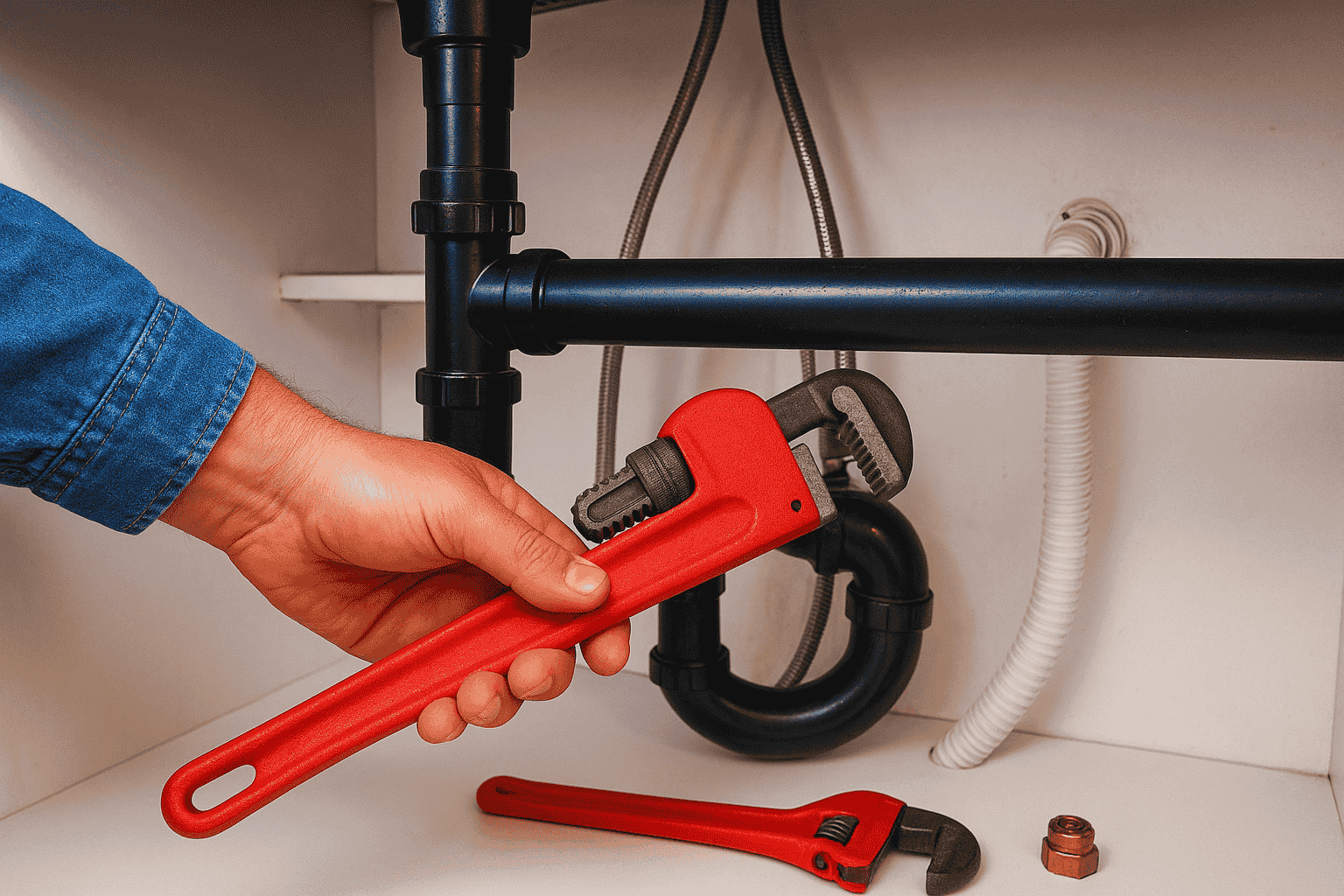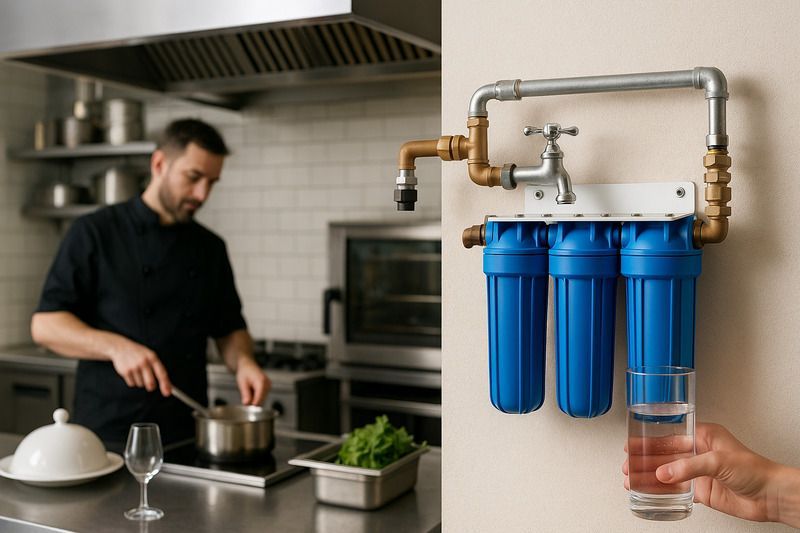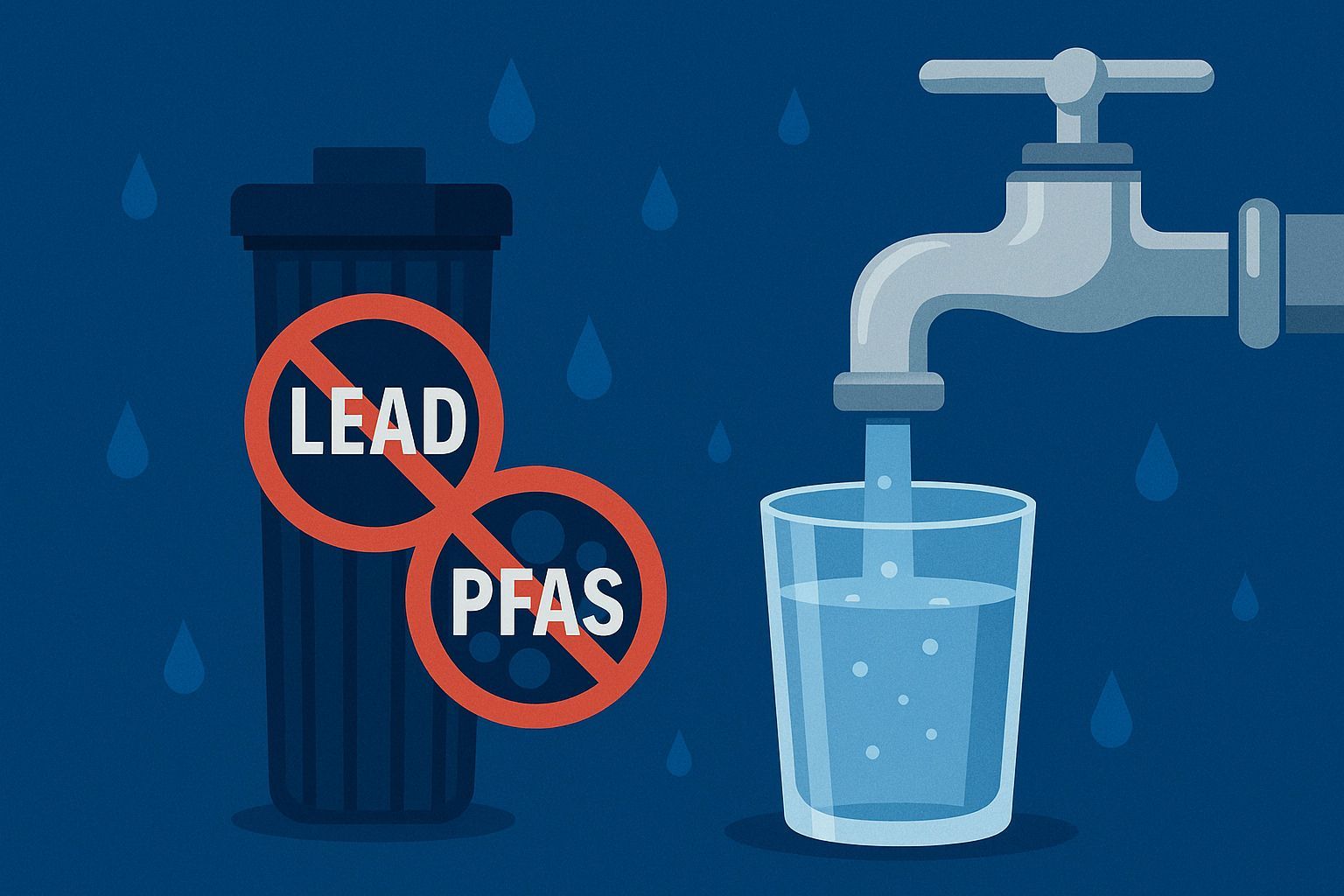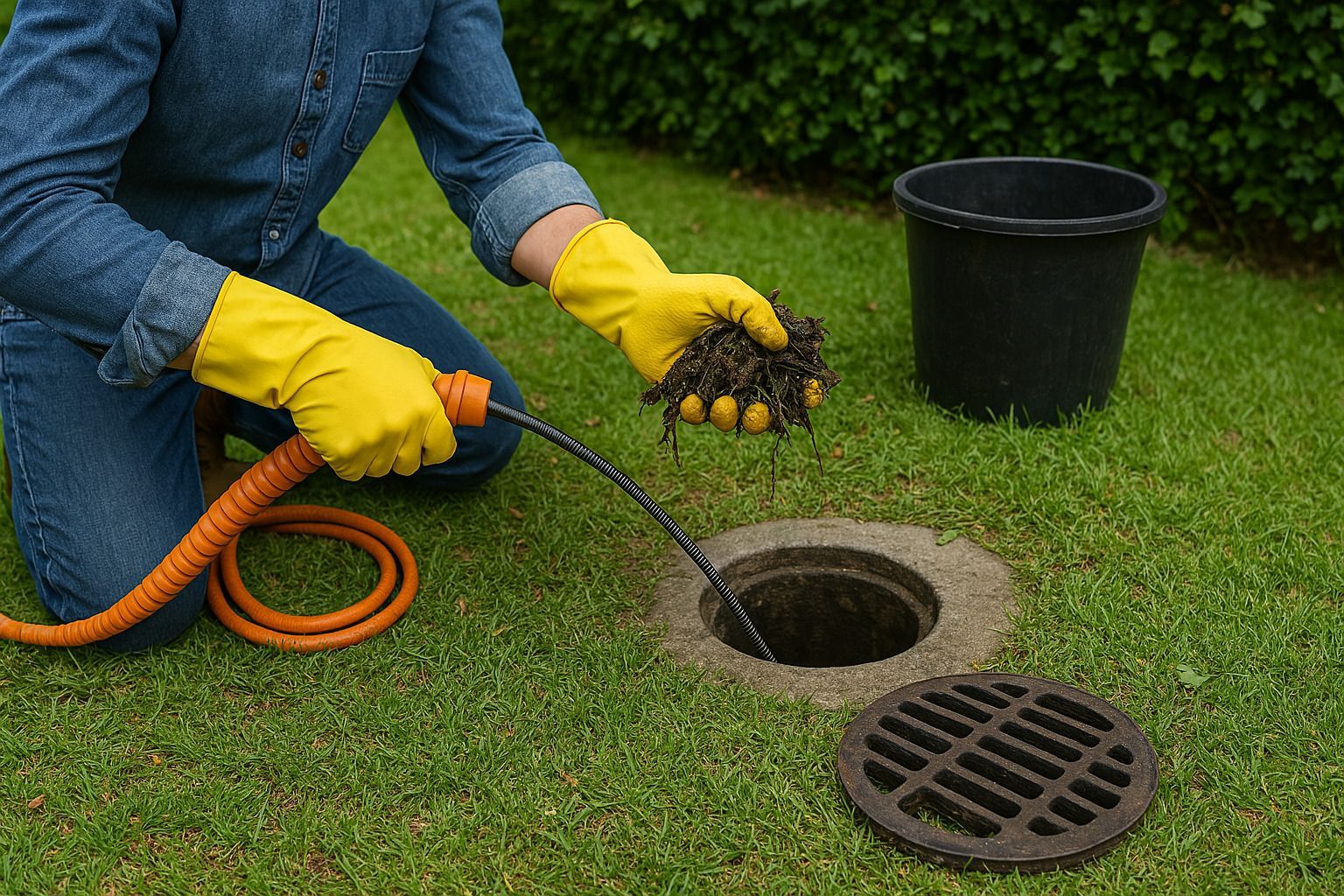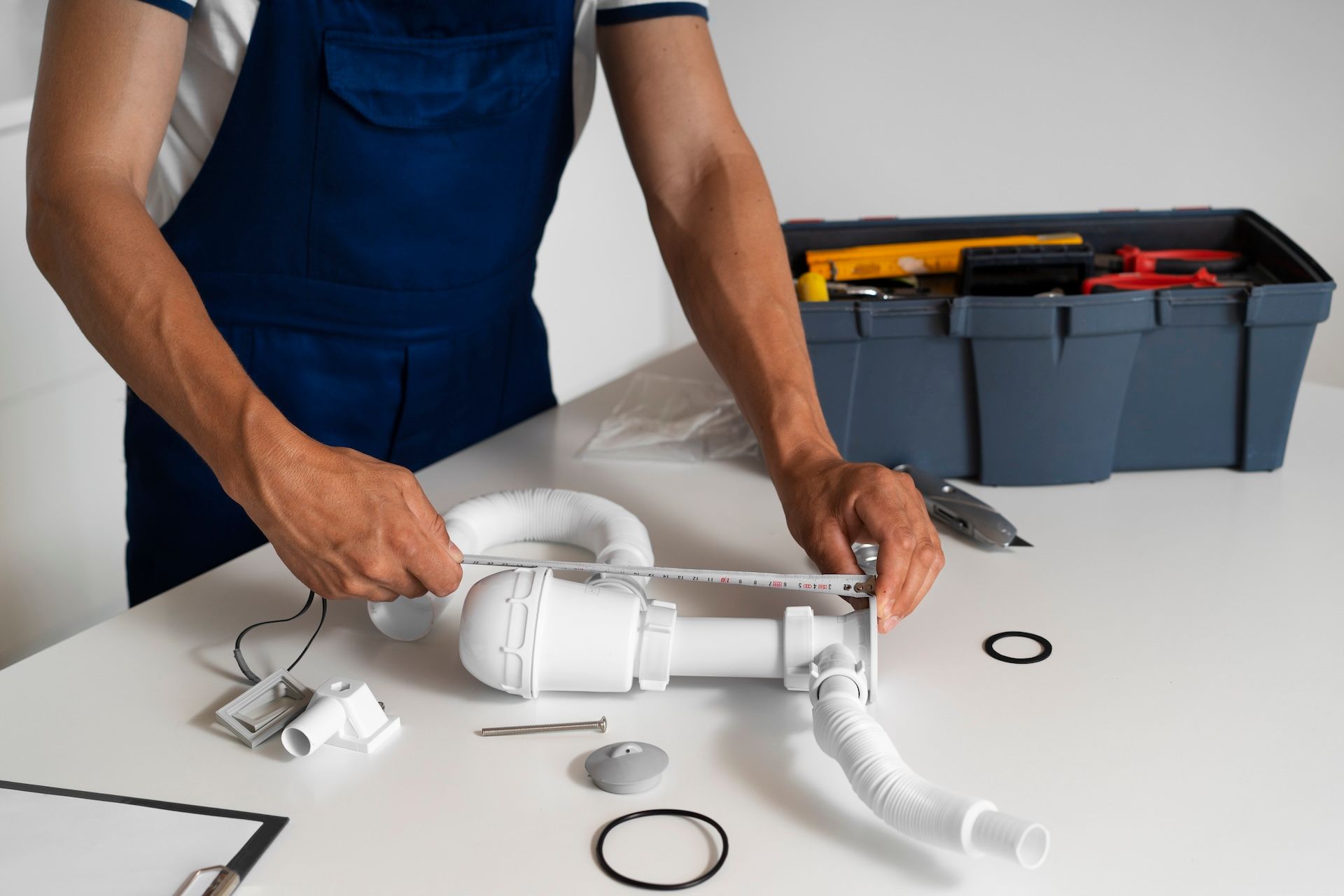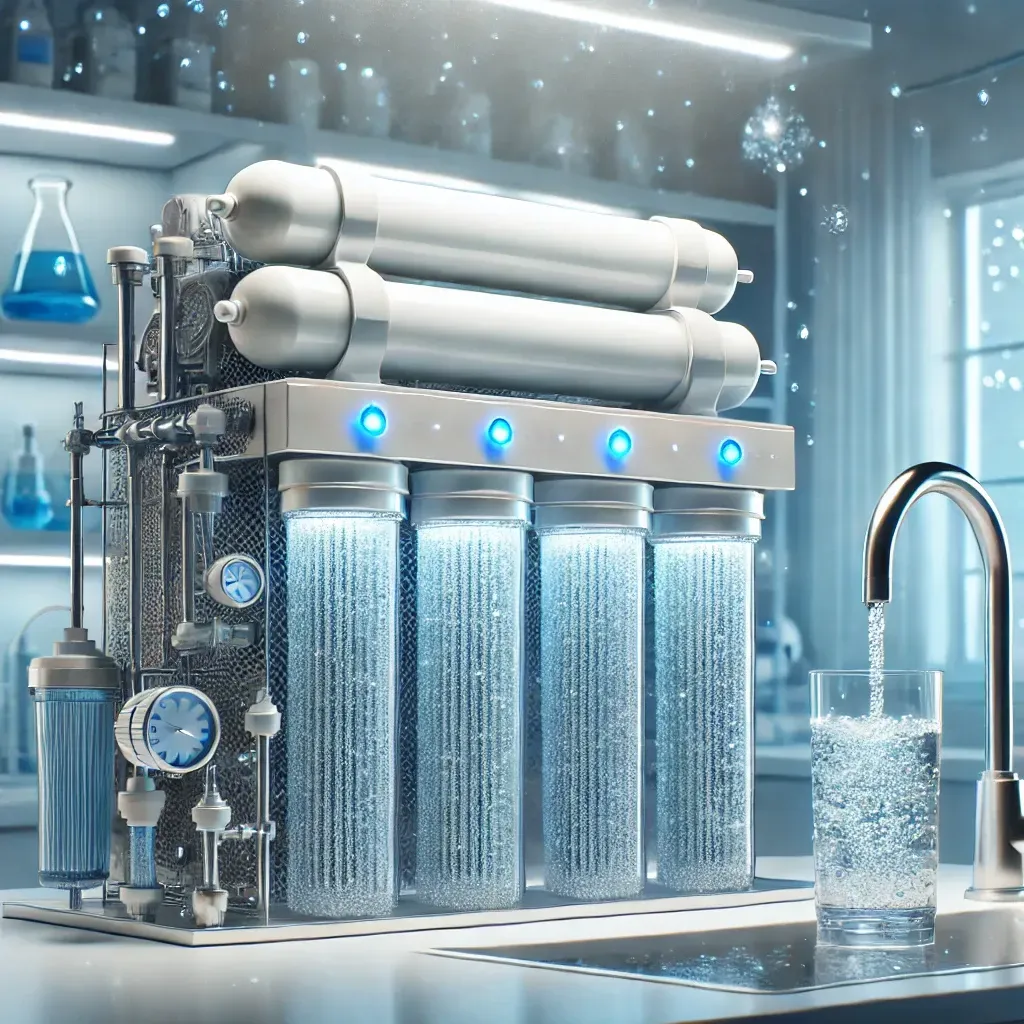What Causes Clogs?
Share this Post on Social Media!
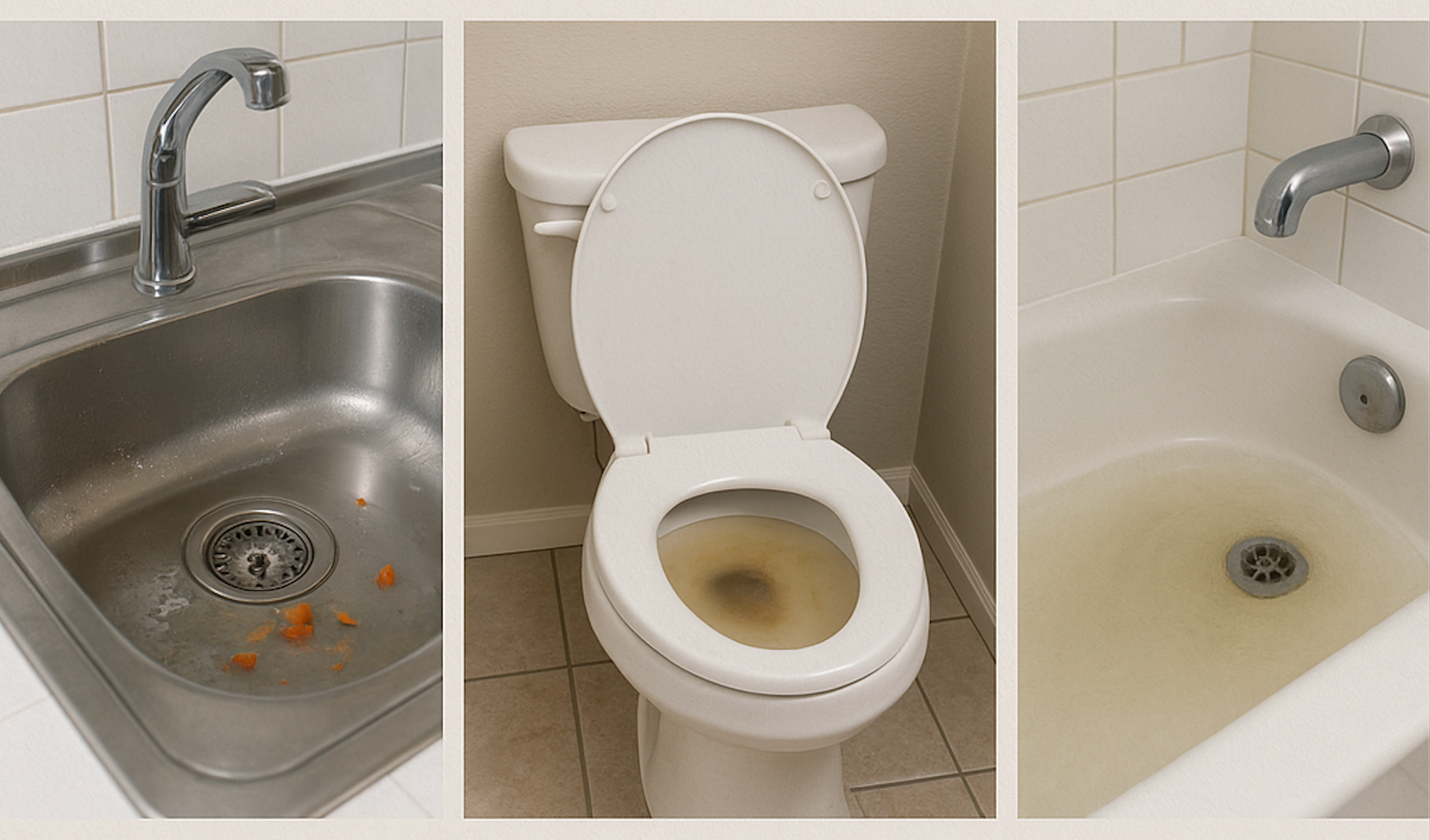
The simplest of daily tasks—showering, cooking, or just brushing your teeth—run on the assumption that your plumbing is working as it should. Clogged drains limited to one appliance or room may start to make those essential tasks inconvenient, but sewer line clogs can make an entire house unlivable. A single clogged drain left unaddressed can lead to toilets that won’t flush, a clogged kitchen sink that can’t be used, and a bathroom that’s all but useless.
As your local plumbing experts in Athens and Northeast Georgia, we've seen our fair share of clogged drains and sewer line nightmares. We understand their causes as well as we know their solutions. We even know how to prevent clogged drains from arising in the first place. So we're here to share our insider tips to help you avoid situations that range from messy to catastrophic.
Where Clogged Drains Come From
At their simplest, clogs occur when a blockage prevents water from flowing through the pipes and out of your home. But what’s behind that blockage? It may be a single item, a buildup, or an intrusion, depending on where the clog originated.
Why There’s a Clogged Kitchen Sink
If you’re experiencing kitchen sink clogs, it likely has something to do with what’s going down the drain to begin with. We put our kitchen sinks through a lot—from cooking meals to cleaning dishes, all manner of items may slide down a kitchen sink and result in a clogged kitchen sink. Here are some of the common underlying causes of kitchen sink clogs.
- Food Scraps: Food scraps can build up in a drain and become an impassable clog that prevents any water from flowing down the pipe. Others can expand in water, causing a blockage all on their own.
- Grease: Grease hardens when it cools. After enough grease has hardened in a pip,e it can restrict or completely block water flow.
- Soap: Soap can build up like grease until it, too, becomes too much for water to pass through.
Clogged Bathroom Sinks and Shower Clogs
Moving from the kitchen to clogged drains in the bathroom involves different uses and different causes. Typically, we aren’t putting our bathroom sink through the same rigorous uses as our kitchen sink, but that doesn’t mean that it’s any less at risk of becoming clogged. Meanwhile, our shower usually only has one function, but that single use can lead to clogs.
- Hair: One of the major drivers behind a clogged bathroom sink or shower clogs is hair. As hair goes down these drains, it can become so built up that it severely restricts water flow.
- Soap: Similar to a kitchen sink, soap can build up in bathroom sinks or showers and result in inconvenient clogs.
- Minerals: Some areas of Northeast Georgia have harder water, with higher mineral content. As this “hard water” passes down pipes, it can deposit minerals on the inside of the pipes. Left unaddressed, minerals can become solid blocks of an entire pipe.
Causes of Toilet Clogs
We’re so used to flushing things down the toilet and away from our house that we immediately notice when that isn’t happening. But often, toilet clogs have their origin in whatever it is that we are flushing down the drain. Only some things are meant to go down toilets.
- Paper products that aren’t toilet paper: Paper towels and tissues may all appear to be made out of the same stuff as toilet paper, but they can’t go down the toilet. Unlike toilet paper, these products absorb water rather than dissolve in it. Once in your pipes, they can become lodged in there.
- Hard Items: Flushing hard items down the toilet is especially common in households with children. These items may appear to flush down, only to become lodged in the plumbing.
Sewer Line Clogs’ Origins
Your home’s main sewer line is just as susceptible to clogs as any other plumbing fixture in your house. Whatever goes down any drain in your house will eventually make its way to the main sewer line, meaning soap, grease, and paper products could all be causes of sewer line clogs.
However, because the sewer line connects your plumbing to the municipal plumbing system, it’s also vulnerable to the elements. In particular, tree root systems hunting for water can invade your sewer line, creating a clog consisting of roots. Or, animals may attempt to make nests in your sewer line, preventing water flow.
Our Expert Plumbers Know How to Prevent Clogged Drains
In our decades of helping our neighbors clear clogs, our expert plumbers have learned how to help homeowners prevent clogged drains from coming back. Now we’d like to share some of these lessons with you, to prevent a clog from occurring in the first place.
Kitchen Drain Tips
A backed-up kitchen sink can put a halt to all cooking and cleaning activities in your life. To avoid the hardship this can cause, implement these tips.
- C&C Plumbers’ Pro Tip #1: No Starches Down the Drain. Starch-heavy foods like potatoes, pasta, and rice absorb water like a sponge. And much like a sponge, they expand in water. Throw any and all starches in the trash instead of the drain, even if you have a garbage disposal.
- C&C Plumber’s Pro Tip #2: No Grease. Always dispose of grease in a special container for it instead of letting it go down the drain. Use paper towels to absorb excess grease off pots and pans so none incidentally slides down the drain.
- C&C Plumber’s Pro Tip #3: Use the Garbage Disposal Appropriately. We tend to see people place a lot of faith in their garbage disposals. While these are great at getting some items down to a safe size, there’s nothing they can do to make risky items safer. Putting things like egg shells, nuts, coffee grinds, and banana peels through the garbage disposal won’t prevent clogs. Putting those things directly in the trash will.
How to Care for Bathroom Drains
Preventing clogged bathroom sinks and shower clogs doesn’t require years of plumbing expertise. Much of what works for other drains will apply to bathroom sinks and showers. However, here is one specific to the bathroom setting.
- C&C Plumber’s Pro Tip #4: Invest in a hair catcher. A hair catcher can prevent shower clogs by keeping all the hair or pet fur that may end up in your shower from reaching your plumbing.
Prevent Toilet Clogs
Like other bathroom drains, general plumbing tips will help prevent toilet clogs. There is one evergreen tip that’s worth sharing though.
- C&C Plumber’s Pro Tip #5: Only toilet paper goes in the toilet. Tissues and paper towels just aren’t made to be flushed down the toilet, so prevent toilet clogs by never flushing these down. The same is true for so-called “flushable” wipes that may flush, but will still clog your drain. Avoid flushing these down, too.
General Plumbing Tips
Finally, regardless of which drain and which room, there are some general tips that can help prevent clogged drains.
- C&C Plumber’s Pro Tip #6: Avoid commercial drain cleaners. Commercial drain cleaners tend to contain harsh chemicals that can degrade your pipes over time. Especially if you have PVC pipes in your home, these cleaners can actually wear through them and lead to leaks in your plumbing.
- C&C Plumber’s Pro Tip #7: Defeat soap scum buildup with hot water. Running hot water regularly through all your drains can help prevent the buildup of soap scum and other minerals in your plumbing. This can prevent clogged drains regardless of the appliance.
C&C Plumber’s Pro Tip #8: Consider an annual drain cleaning service.
As much as you try to prevent clogged drains in your home, there’s still a risk of clogs. It may be the case that a previous occupant or owner wasn’t as careful about what they put down the plumbing, creating unknown hazards. There may also be occasional accidents and slip-ups that lead to dangerous items going down drains. Contact us today to get these and more cleared out with an annual cleaning from C&C Plumbing.
Recognizing Sewer Line Clogs
Just as important as preventing clogs is recognizing when they occur. In some cases, the clog is obvious, as water won’t go down the drain. But other clogs, especially ones in harder-to-see plumbing components, can be more difficult to spot. But slow-draining sinks, showers, and toilets, foul odors near plumbing, and wet spots in your lawn can all indicate a more substantial clog.
When you notice these signs, don’t hesitate to reach out for help. It’s possible the source of the clog is deep within your plumbing or a sewer line clog beyond the reach of even the most capable DIYer. Call us today for a free consultation. There’s no risk and no commitment.
